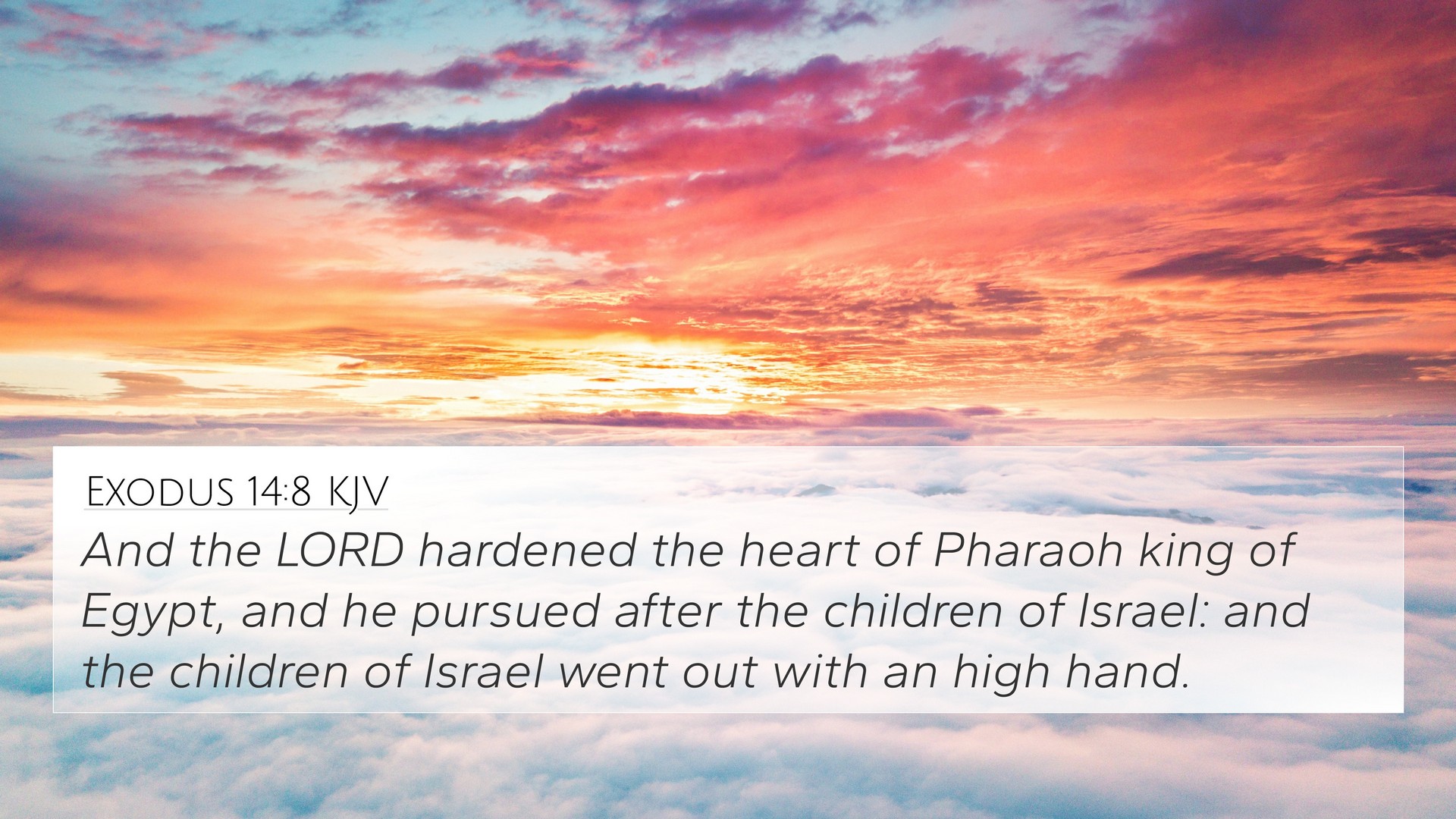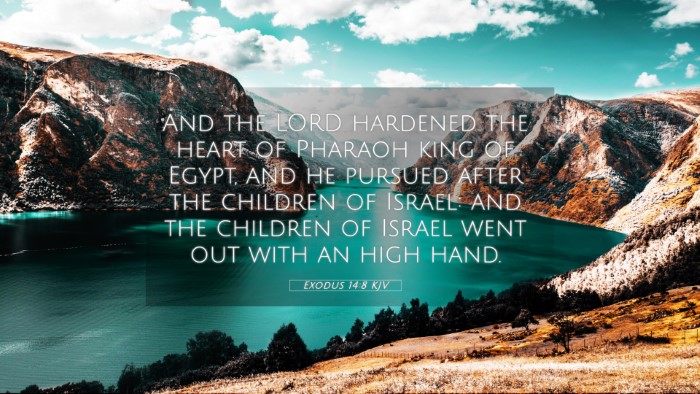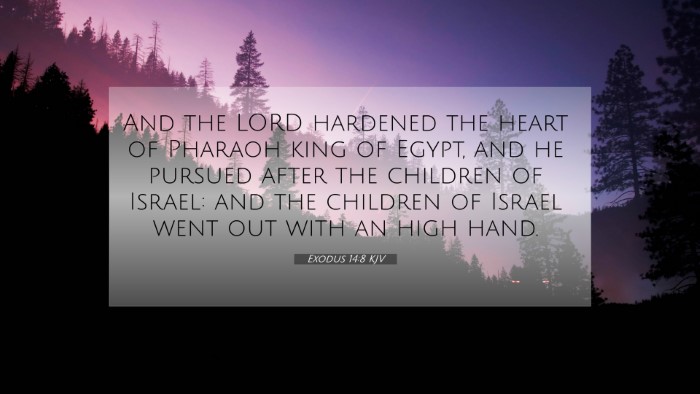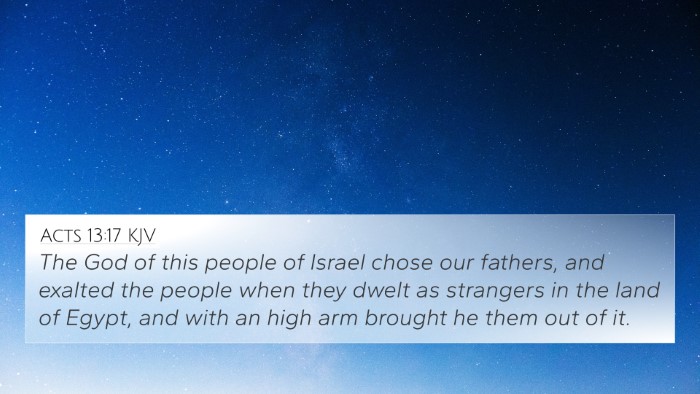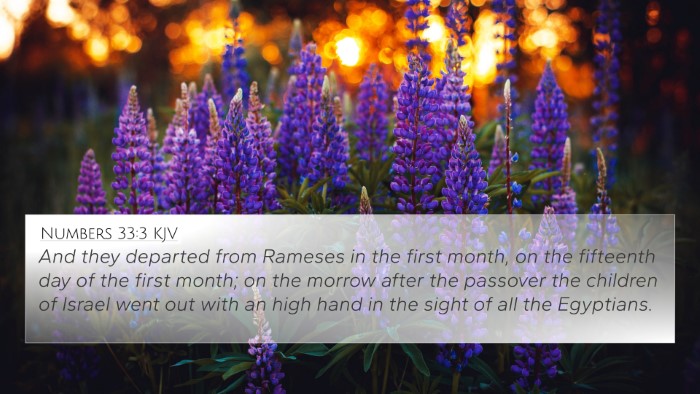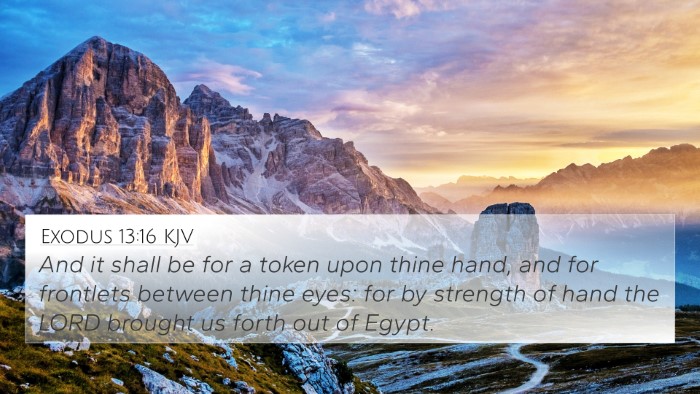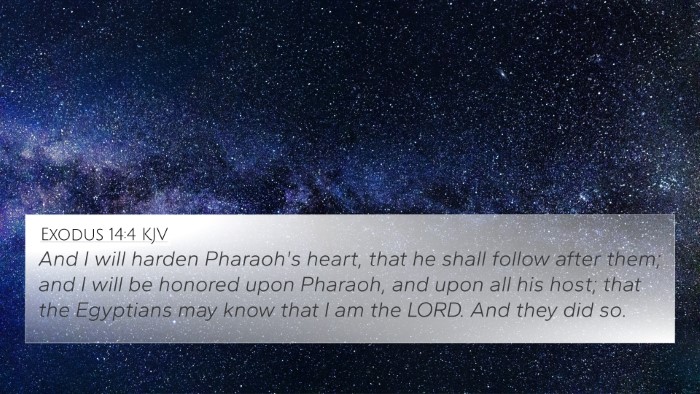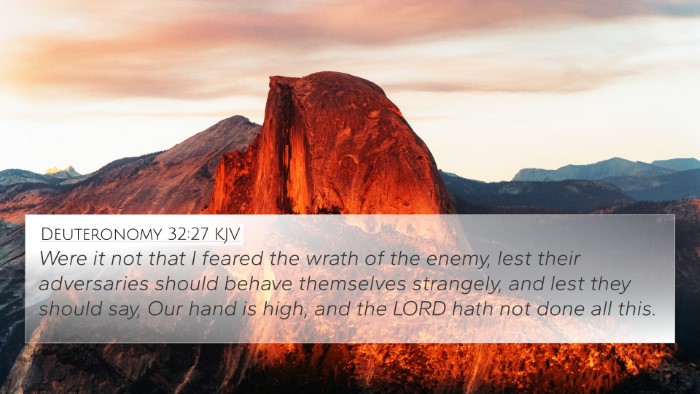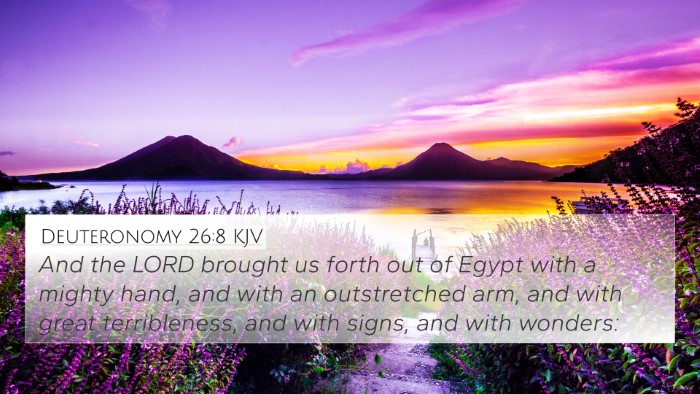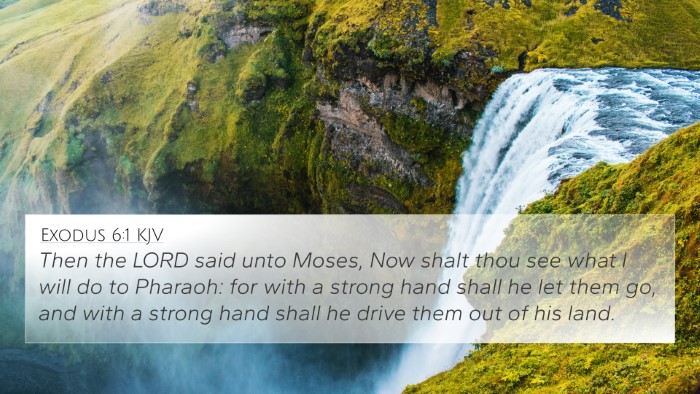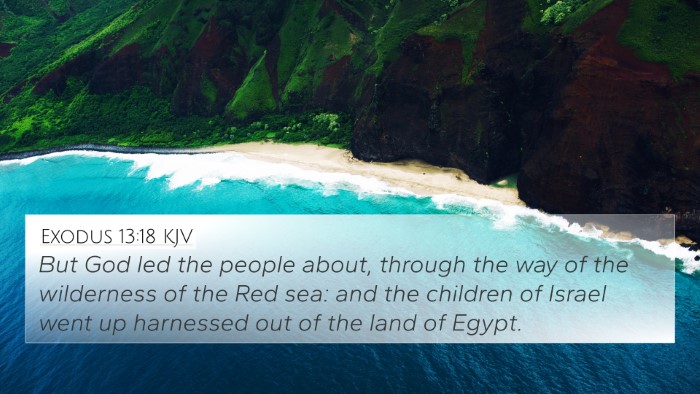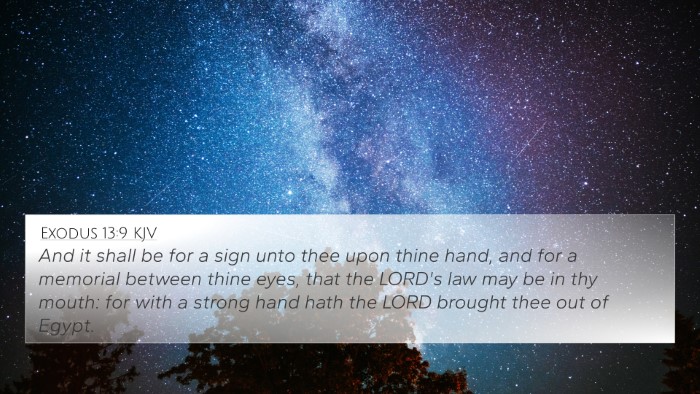Understanding Exodus 14:8
Verse Reference: Exodus 14:8
The verse states:
“And the Lord hardened the heart of Pharaoh king of Egypt, and he pursued after the children of Israel: and the children of Israel went out with an high hand.”
Summary and Interpretation
Exodus 14:8 depicts a significant moment in the Exodus narrative where the hardening of Pharaoh's heart leads him to pursue the Israelites despite the severe judgments he experienced in Egypt. This pursuit culminates in a dramatic confrontation at the Red Sea. Below, we will explore insights from several public domain commentaries to provide a comprehensive understanding of this verse.
Insights from Commentaries
-
Matthew Henry:
Henry notes that the hardening of Pharaoh's heart was a part of divine providence. It was not merely an act of cruelty but a means to display God's power and bring glory to His name. Pharaoh's relentless pursuit serves to demonstrate God's protection over His people, ensuring an epic deliverance.
-
Albert Barnes:
Barnes highlights the theological implications of God hardening Pharaoh's heart. He suggests that this action raises questions about free will and divine sovereignty. Barnes argues that while Pharaoh was initially given the chance to relent, his continuous defiance led to God's judicial hardening, which showcases the seriousness of disobedience to God.
-
Adam Clarke:
Clarke expands on the idea of divine judgment and mercy. He asserts that Pharaoh’s heart was hardened as a result of his own choices, and thus serves as a warning against stubbornness. His pursuit of the Israelites despite the plagues indicates his refusal to submit to God's will, ultimately leading to his downfall.
Bible Cross-References
To gain a deeper understanding of Exodus 14:8, it's beneficial to explore its interconnections with other scriptures. Here are some related Bible verses:
- Exodus 10:1-2 - Discusses God's hardening of Pharaoh's heart and the purpose behind it.
- Exodus 7:3-4 - Mentions the Lord's foretelling that Pharaoh will not listen, illustrating the purpose of the upcoming plagues.
- Romans 9:17-18 - Paul references Pharaoh's hardening to discuss God's sovereignty in election and mercy.
- Hebrews 3:15 - Warns against hardening one's heart, connecting it to the themes of disbelief and rebellion.
- Psalms 78:43-51 - Reflects on God's might displayed during the Exodus, highlighting the plagues sent upon Egypt.
- Psalms 136:15 - Celebrates God’s enduring love as seen in the destruction of Pharaoh and his army.
- Jeremiah 7:25-26 - Comments on Israel's history of stubbornness and refusal to heed God's message.
Thematic Connections
Exodus 14:8 provides a crucial understanding of themes within the broader Biblical narrative. Some key themes include:
- Divine Sovereignty: God's control over historical events illustrates His supreme authority.
- Judgment and Mercy: The balance between divine judgment on Egypt and the mercy shown to Israel.
- Faith and Obedience: The critical importance of heeding God's commands and the consequences of disobedience.
Tools for Bible Cross-Referencing
To explore these connections further, utilizing a variety of tools can enhance one’s Bible study experience:
- Bible Concordance - A reference guide that lists words and their occurrences throughout the Bible.
- Cross-Reference Bible Study - Methods and approaches to link related Bible verses.
- Bible Chain References - Techniques to connect verses thematically or through narrative parallels.
Conclusion
Exodus 14:8 is a profound verse that serves as a reminder of God’s control over events and the serious nature of choosing to oppose His will. By analyzing this verse alongside correlated scriptural passages, one can appreciate the intricate web of God's providence and the importance of faithfulness in the face of challenges. The insights gained through cross-referencing can significantly enrich one's understanding of the Bible and its teachings.
Further Study Suggestions:
- Conduct a comparative Bible verse analysis focusing on divine sovereignty.
- Explore the linking Bible scriptures that discuss themes of deliverance and judgment.
- Engage in a cross-referring study between the Old Testament prophecies and New Testament fulfillments.
